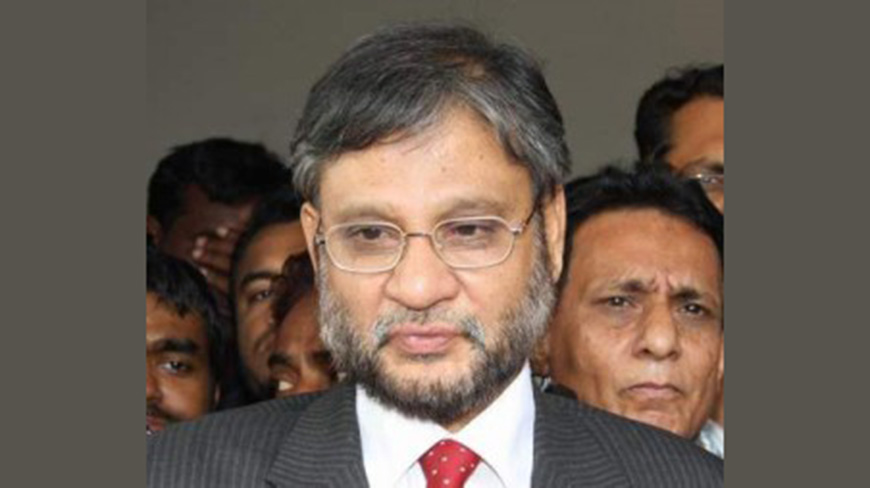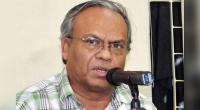 BNP’s longtime ally, Jamaat-e-Islami has always been under fire for the role it played during the 1971 War of Liberation. Despite many pushes, the party has obstinately refused to apologise for the role it played.
BNP’s longtime ally, Jamaat-e-Islami has always been under fire for the role it played during the 1971 War of Liberation. Despite many pushes, the party has obstinately refused to apologise for the role it played.
The party’s headstrong stance has led to one of its top leaders Barrister Abdur Razzaq resigning from the party altogether.
Currently residing in London, Razzaq served as Jamaat’s assistant joint secretary general until his resignation. He led the defence of 1971 war crimes convicts.
In his letter to the party’s chief, he cited Jamaat’s refusal to ask forgiveness for its dubious role during the 1971 War of Independence as the reason behind his resignation.
Bangla Tribune was able to reach him and he answered a few questions regarding the matter.
Bangla Tribune: You resigned at a time when Jamaat’s policymaking forum Majlis-e-Shura was considering a name change for a party and for a new organisation. Does your resignation have anything to do with joining the new organisation?
Barrister Razzaq: I’m not joining any new organisation. I don’t know what Jamaat will and won’t do but I already said in my resignation letter that I will be involved in my own profession.
What’s Jamaat’s reaction to your resignation?
I spoke to the party Amir Makbul Ahmed over the phone after sending my resignation letter to him. I also informed Secretary General Shafiqur Rahman. We used to be friends and I hope it will remain that way.
Will you be coming back to the country anytime soon?
I’m doing well in London and continuing my practice here.
Jamaat leaders’ reaction to Razzaq’s resignation:
Jamaat’s Secretary General Shafiqur Rahman released a media statement hours into Razzaq’s resignation, remembering his contribution for the party.
“I am greatly saddened by his resignation,” the statement read.
Rahman wished his fellow party committee member all the best and hoped to maintain their friendly ties.
Also Read Razzaq resigns from Jamaat, advising apology for 1971
Responding to queries on the matter, the party’s executive committee member Dr Syed Abdullah Mohammad Taher told Bangla Tribune, “I heard about Barrister Razzaq’s resignation.
“I can make any comments until hearing the whole matter.”
On the other hand, another central leader said that Razzaq’s resignation was not sudden when asked whether this was a strategic move to join the new organisation.
Jamaat’s stubborn dismissal of party reform:
This is the very first-time Jamaat saw one of its leaders leave the party over its role in the 1971 war.
The party has always been the subject of controversy due to its anti-liberation war stance and was banned three times in 1959, 1964 and 1972 since its establishment in 1941.
It made its way back into the Bangladeshi political arena in May 1979, during the regime of the military dictator and BNP founder Ziaur Rahman.
In his resignation, Razzaq said that he had consistently advised the party to seek the nation’s forgiveness over its role in the 1971 War of Liberation since 2001.
In 2007-08, 2011 and finally in November of 2016 he made the same written proposal to the Majlish-e-Suhra committee but the party paid no heed to it.
The families of many Jamaat leaders claim that anybody who proposed reform in the party couldn’t stay with it for long but Razzaq’s resignation is quite significant.
Many, including the party members, see it as a move to join the party’s new organization.
Also Read Jamaat hurt at Razzaq’s resignation
However, over the last few days, with talks of the name change and formation of the new apolitical body, many leaders proposing reform and getting vocal about the party’s stance in the Liberation War have been sidelined under many pretexts.
The BNP-led 20-party Alliance’s partner Khelafat-e-Majlish Secretary General Ahmed Abdul Quader was the President of Jamaat’s student body Chatra Shibir back in 1982.
“We reviewed Jamaat’s role in ’71. As in we tried to find answers to some questions,” he said.
According to Ahmed, Jamaat didn’t like the questions that were posed.
Meanwhile, Farid Ahmed Reza, currently living in London, was the Secretary General of Chatra Shibir the same year.
On Mar 24, 2016, he had told Bangla Tribune, “The international scenario, allegations of war crimes and resistance of the Islamists must be taken into consideration.”
“There is no indication that Jamaat has a promising future in Bangladeshi politics,” he added.
In 2016, Ataur Rahman, now deceased was forced to stand down from the post of nayab-e-amir and many leaders say that he had raised the question about the 1971 war.
The party’s assistant secretary general Muhammad Kamruzzaman proposed reforms for the party from prison in 2010 before he was hanged for crimes against humanity in 2015. The party leadership, however, paid no heed to them.
According to many leaders and families of the leaders, anyone proposing reform was forced to leave the party some way on the other.


